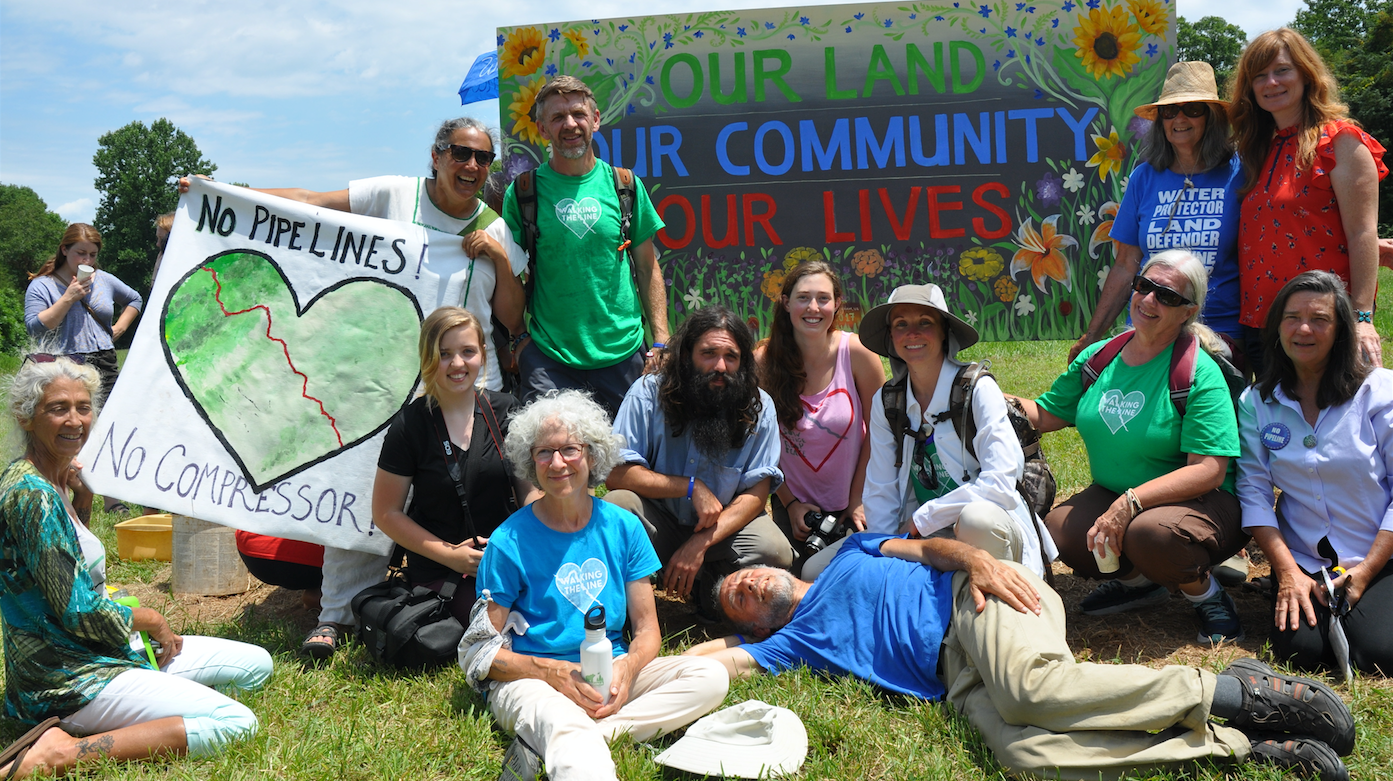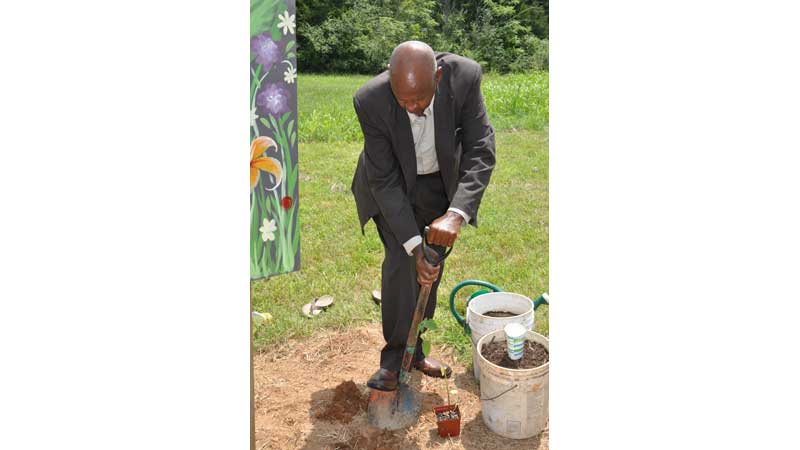Walk celebrates the land
Published 10:43 am Thursday, July 6, 2017
About six people recently concluded a 150-mile walk across five counties along a portion of the planned 600-mile Atlantic Coast Pipeline (ACP) route at the intersection of Union Hill Road and Route 56 in Buckingham County.
The event, which began June 17 and concluded Sunday, was called “Walking the Line: Into the Heart of Virginia,” and it sought to connect hikers with the land, water and people that would be impacted by the proposed ACP, being led by Dominion.
“We walked this walk, and the walk was about connecting with the land and the water and the people to bring it all together to celebrate what’s out there,” organizer Lee White said while standing alongside Route 56 beside a colorful sign reading “Our community, our land, our lives,” bordered by flowers and vegetation.
“We didn’t walk to protest. We were not protesting against anything. We’re here to celebrate, and that’s why we’re all here today,” White said.
The walk concluded in Buckingham to highlight the potential impacts of a proposed 53,783-horsepower compressor station that’s slated for Route 56 between Shelton Store and Union Hill roads, near where the sign was erected.
In mid-June, county supervisors tabled a special use permit for Dominion to construct a 195-foot microwave communications tower as part of its proposed compressor station. The board’s consensus came after 13 people spoke in opposition to the permit, calling for Dominion to integrate fiber optic communications to the compressor station rather than what many of the speakers alleged to be outdated microwave technology.
“It makes it real,” White said of walking the more than 100 miles through communities, towns and villages that could be impacted by the project. “I planned the whole (walking) route too … Walking through the communities like Deerfield … You understand the gravity of what would be lost and what will be impacted.”
Mountains were also traversed, White said.
“When you camp on the land up in Weyer’s Cave in Nelson County where it’s proposed to come through, you just understand it on a deeper level.”
Part of the hike was for the walkers “to experience what would be lost,” he said.
While a core group of about six people walked the entire journey, he said “dozens and dozens” joined them periodically.
“People (have) come as far as Philadelphia, Northern Virginia … from Fairfax County,” White said.
In January, county supervisors approved a special use permit for the hotly-contested station.
The compressor station — which would help push gas along the pipeline — was approved with 41 conditions, including horsepower limits, emergency response, air quality studies and emissions tests, installation of fire breaks, a backup emergency communications system, compliance with the permit, staffing, noise and use of silencers. The staffing condition included one staff member to be on site 24/7 for the first year.
The 5-0-2 decision came after 76 people spoke during a public hearing on the permit application. Seven of the 76 spoke in favor of the permit while the remainder that spoke opposed the measure.
White hopes the energy behind the walk will continue to Richmond where state legislators are located during their General Assembly sessions.
“The compressor station would affect everybody for about 100 miles,” said Pastor Paul Wilson, who preaches at Union Hill and Union Grove Baptist churches.
“Earth holds memories,” said Friends of Buckingham Chair Chad Oba, who lives near the site of the compressor station. “I really believe that the earth holds memories. Let’s heal the earth. Let’s heal the community. Let’s let this be a dedication to go forward as a community and love for the earth and this community.”
Explaining the small plants around the sign, Oba said walkers and many others collected water from streams, creeks, rivers and other waterbodies that would be crossed by the ACP. This was mixed with water collected from Buckingham.
“We’re going to water those with the combined water that we have gathered,” Oba said.
Sources of water included the James River, springs, the Chesapeake Bay and the Cowpasture River.
“This water comes from across the state and is a reminder of what we are about and why it so important that we stop the compressor station (and) we stop the pipeline,” Wilson said.
Marie Gillespie, who lives in the area of the compressor station and whose driveway could be bisected by the pipeline, offered an emotional response to the walkers.
“I’m speaking for my neighbors who are absent from here … You need to know that they are grateful for all that you have done. We’re living with this nightmare, but you’ve made it bearable. … Please know that we appreciate it more than words can say.”
“The proposed Buckingham compressor station will be one of the largest of its kind and targets this small, rural, largely African-American community to bear, by far, the greatest burden from the real dangers of fire and explosion and from toxic emissions and degraded land values of any community along the proposed ACP pipeline route,” said Kay Ferguson, another organizer of the walk.
“This is not about keeping the lights on. This is not about jobs. This is corporate greed and a land grab hiding under a very thin mask of common good. This is a stark and clear instance of environmental racism.”
According to Ferguson, the idea of the walk came from a new group, based in Charlottesville, called Cville Rising, “and its genesis was a desire to extend some of the energy and commitment of the Charlottesville-Albemarle community out into the counties to assist those struggling against Dominion’s assault.”







